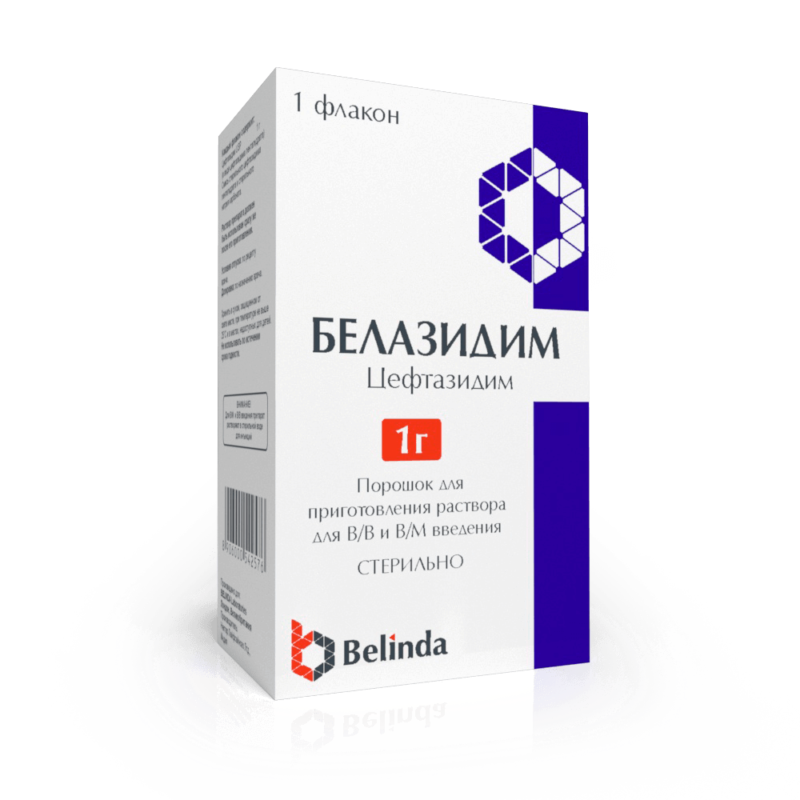
Belazidim
PRESCRIPTION
Ceftazidime is an antibacterial drug from the group of third-generation cephalosporins, has a broad spectrum and is bactericidal, disrupts the synthesis of the cell wall of microorganisms, and is resistant to the action of most beta-lactamases.
Manual
each bottle contains:
Ceftazidime USP 1 g (as ceftazidime pentahydrate)
A mixture of sterile ceftazidime pentahydrate and sterile sodium carbonate.
Belazidim is prescribed to adults and children for the treatment of the following infectious diseases caused by microorganisms sensitive to the drug:
- severe infections: meningitis; sepsis (septicemia);
- severe purulent-septic conditions;
- infections of bones and joints: septic arthritis, osteomyelitis, bacterial bursitis;
- respiratory tract infections: acute and chronic bronchitis, infected bronchiectasis, pneumonia caused by gram-negative bacteria, lung abscess, pleural empyema;
- urinary tract infections: acute and chronic pyelonephritis, pyelitis, prostatitis, cystitis, urethritis (bacterial only), kidney abscess;
- infections of the skin and soft tissues: mastitis, wound infections, skin ulcers, cellulitis, erysipelas, infected burns;
- infections of the gastrointestinal tract, abdominal cavity and biliary tract: peritonitis, enterocolitis, retroperitoneal abscesses, diverticulitis, pelvic inflammation, cholecystitis, cholangitis, gallbladder empyema;
- infections of female genital organs;
- infections of the ear, nose and throat: otitis media, sinusitis, mastoiditis, etc.;
- gonorrhea (especially with hypersensitivity to antibacterial drugs from the penicillin group).
Belazidim is administered parenterally – intravenously and intramuscularly.
In adults and children over 12 years of age, the usual single dose of Belazidim is 1 g every 8-12 hours or 2 g every 12 hours.